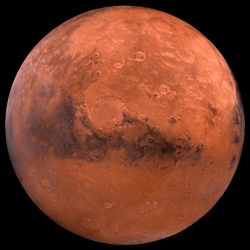
Aerojet Rocketdyne has won a $67 million contract from NASA to design and develop an electric propulsion system to power future trips to an asteroid and Mars. The goal of the 36-month project is to deliver a system that could improve fuel efficiency by a factor of 10 over chemical rockets.
The work could set the stage for a deep-space demonstration mission by 2020, Steve Jurczyk, associate administrator of NASA’s Space Technology Mission Directorate, said today in a news release announcing the contract award.
“Development of this technology will advance our future in-space transportation capability for a variety of NASA deep-space human and robotic exploration missions, as well as private commercial space missions,” he said.
Solar electric propulsion already has been used experimentally on several NASA probes, including Deep Space 1 and the Dawn orbiter that’s currently circling the dwarf planet Ceres. Solar arrays on the spacecraft generate electrical power, which is used to produce positively charged ions and accelerate them through an electric field. After acceleration, electrons are injected into the ion beam to maintain a neutral plasma.
Engineers at NASA’s Glenn Research Center in Ohio have pioneered electric propulsion, and they’ll be working with Aerojet on the propulsion project. So will engineers from NASA’s Jet Propulsion Laboratory.
NASA plans to use solar electric propulsion on a robotic probe that’s due to snag a piece of a near-Earth asteroid and place it in orbit around the moon in the mid-2020s. Electric propulsion systems are also expected to send astronauts to Mars and its moons starting in the 2030s.
